
Discovering how to find a website's keywords is an invaluable skill in the ever-competitive world of online marketing. It not only allows you to optimize your own site but also gives you insights into your competitors' strategies.
In this article, we'll delve deep into various methods that can help you find the SEO keywords of any website, even those of your biggest competitors.
Key Takeaways
- Understanding how to find a website's keywords is crucial for enhancing your SEO strategy.
- Use dedicated SEO tools to find comprehensive insights into the keywords your competitors are using.
- There are different types of keywords that a site can and should incorporate to reach a wider audience, take note of these while you are doing your research.
Why Find Keywords Other Websites are Using?
Marketers and SEOs have various reasons for finding a website's keywords, here are the three most common reasons for checking another site's keywords:
Find Content Gaps
One of the most compelling reasons to uncover the keywords other websites are using is to find content gaps.
Content gaps represent topics or areas in your niche that you haven't thoroughly covered on your site but your competitors have. By identifying these gaps, you can create targeted content to fill them, thereby increasing the relevance and reach of your website.
Imagine for a moment that you’ve got a landscaping business in Austin, Texas and you’re looking for some new content ideas that you haven’t covered on your company’s blog yet.

By finding the keywords used on your competitor’s website, you can see what the content gaps are between you and your competitors, which you can then cover in your own blog post.
Find Additional Keyword Ideas
When preparing your content briefs for writers or your internal team you likely already have a good idea of the primary keyword that you want to target with your new blog post.
But did you know that you should also target other search phrases, other than your primary keyword?
These could be long-tail keywords you haven't thought of, trending terms in your industry, or niche keywords that have a lower competition but higher conversion potential.
When you check the keywords on your competitor's website and what they are ranking for, you're essentially stepping into a goldmine of keyword ideas.
For instance, let’s imagine that you’ve got a blog in the fitness industry, more specifically, in the “triathlon” niche which includes content on how to train for triathlons, gear reviews, nutrition, etc.

Now let’s say that you’re planning your next blog article targeting the keyword “front crawl drills,” this blog post will explain different drills to swim freestyle, also known as front crawl.
However, by checking the keywords on the websites that are already ranking for this keyword, you’ll see that they’re also using keywords such as “front crawl swimming technique”, “front crawl technique”, and “crawl swimming technique”.
You can then use these additional keywords as secondary target keywords that you can add to your blog post.
Find New Keywords for Updating Old Content
Another important reason to check a website’s keywords is when updating and refreshing older content.
The idea behind updating old content is to improve the post’s rankings by optimizing the content, adding new information, and covering a broader range of keywords.
By finding the keywords that other higher ranking sites are using, you can get new keywords to add to your existing post.
You can also try this on your own site.
Joe Davies from Fatjoe, an SEO deliverables platform, says that if he only had 30 minutes to rank a page higher in Google, he would check the keywords the page is ranking for, but that aren’t being targeted.
And then create sections that target those specific keywords and search phrases.
1. Install Query Hunter
— Joe Davies (@fatjoedavies) February 5, 2024
2. Go to page I want to rank higher
3. Open extension
4. Find high traffic terms that the page is being found for but isn’t being targeted in the content
5. Generate the sections using content genie to give those terms coverage https://t.co/88ShS7yTgc
Satisfy User Search Intent
Search intent refers to the reason or motive behind a user's specific search query. It’s what leads a person to type a particular set of keywords into the search bar.
When you examine the keywords your competitors are ranking for, you gain insights into what your target audience is actively searching for. This allows you to tailor your content to match their needs and expectations better.
How to Find Any Website’s Keywords
Now that you understand the importance of finding a website's keywords, let's delve into the practical ways on how you can uncover these valuable keywords.
1. Use a Keyword Research Tool to Check a Website’s Keywords
While manual methods like analyzing meta descriptions and website content have their place, finding a website's keywords deserves a more efficient approach. Using a keyword research tool to check a website's keywords simplifies the process significantly compared to other methods.
Keyword research tools are designed specifically to streamline your research.
They offer a wealth of information, from the most popular keywords in your industry to those hidden gems that have high potential but low competition.
Not only do they save you time, but they also provide more accurate and comprehensive data than manual research methods.
One such powerful tool is the SEOptimer Keyword Research tool. This robust tool offers an easy and efficient way to uncover critical keywords for your website.
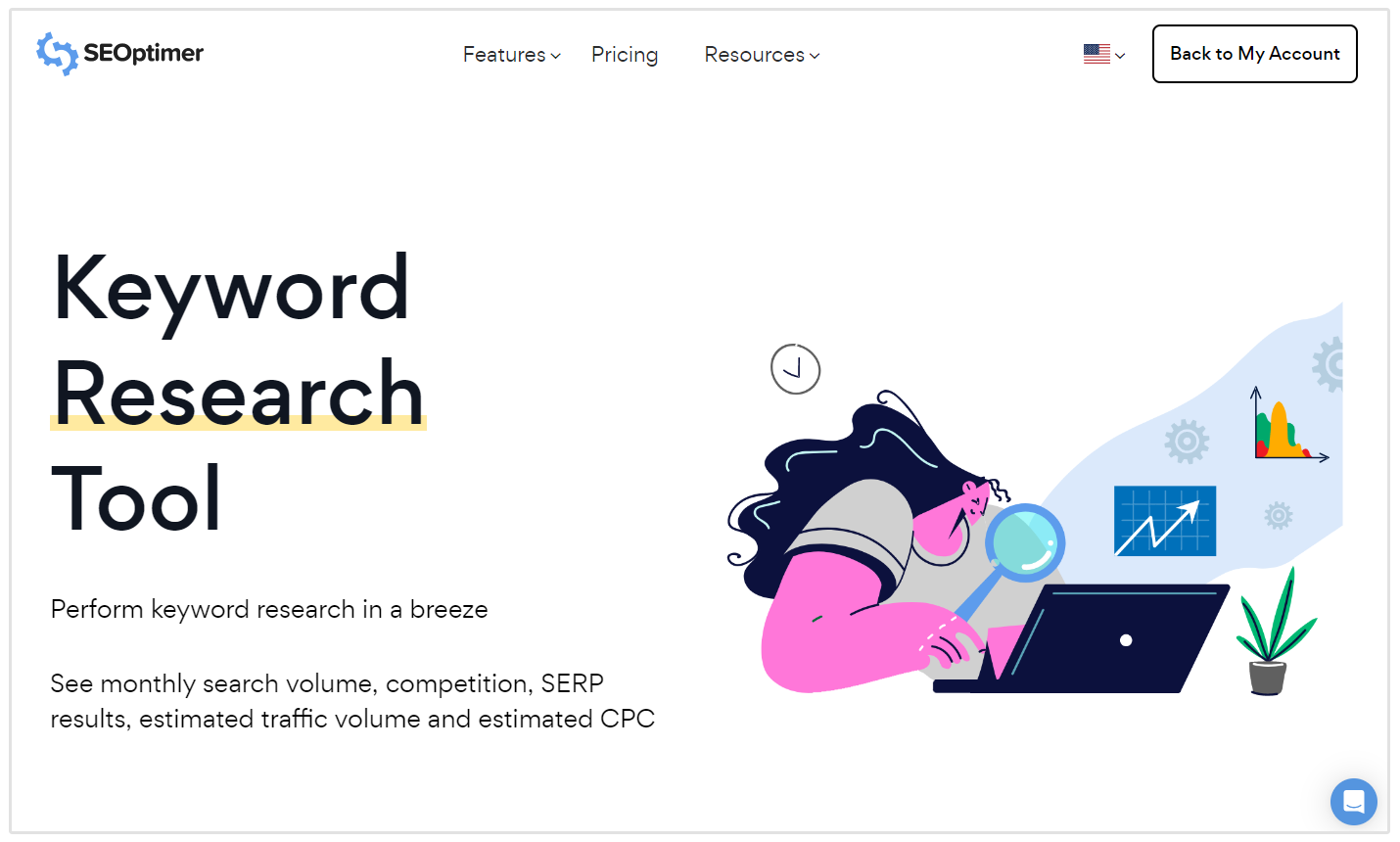
By simply entering a URL, you get instant access to a list of keywords that the website is ranking for.
It doesn't just give you a list of keywords; it provides useful metrics like search volume, cost per click (CPC), and competition level.
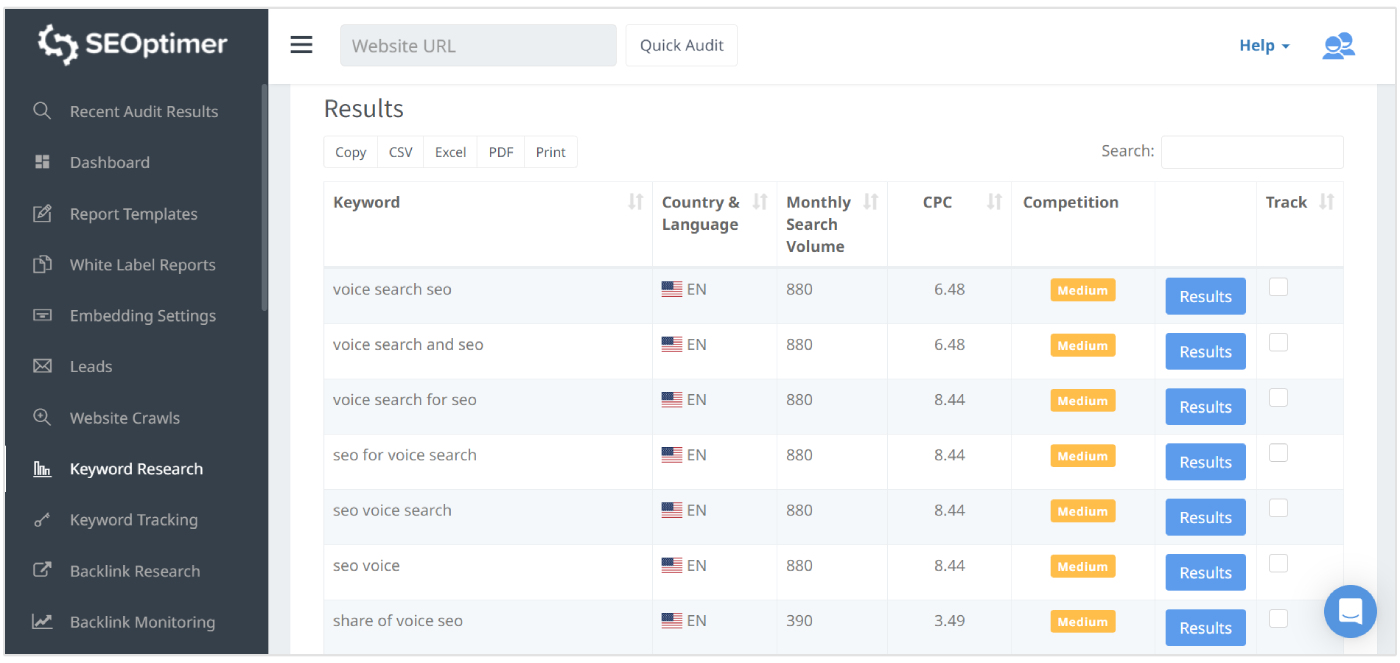
These insights can help you make informed decisions about which keywords to target.
2. Run a Website Audit
One of the fundamental checks when doing a website audit is to analyze the keywords that a web page is already ranking for and using.
This is important because it helps you to understand how well any website, whether yours or your competitor’s, is optimized for search engines.
You can use a website audit tool to see how well the website you are studying is optimized for those keywords.
For instance, let’s take the example of our triathlon focused website. By performing a quick audit on one of your competitors, you’ll see the keywords that they’re currently ranking for.
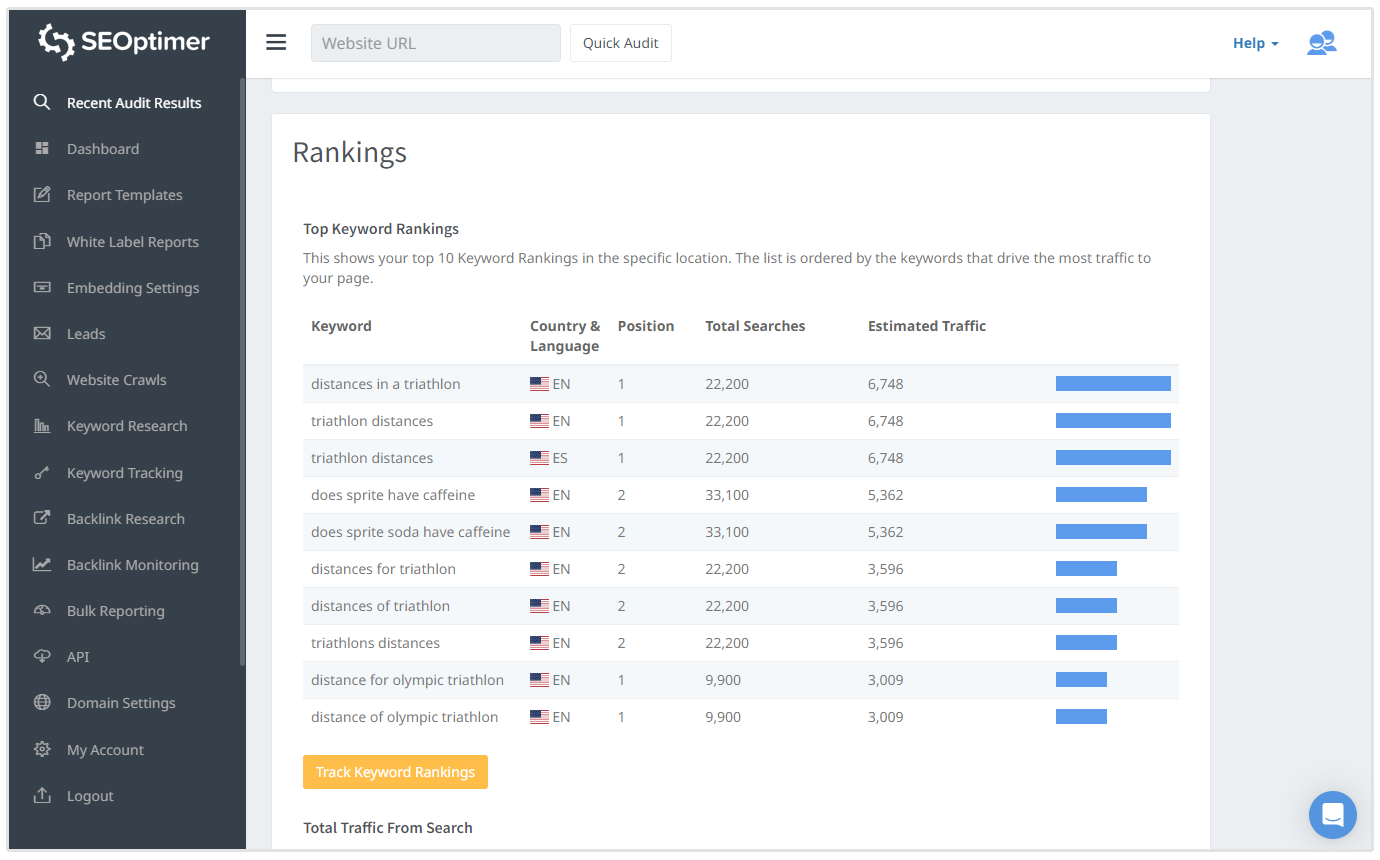
Furthermore, SEOptimer's website audit and reporting functionality can help you with this by providing you with a comprehensive report on any site’s SEO performance.
The report will include information on the site’s on-page SEO, technical SEO, and off-page SEO.
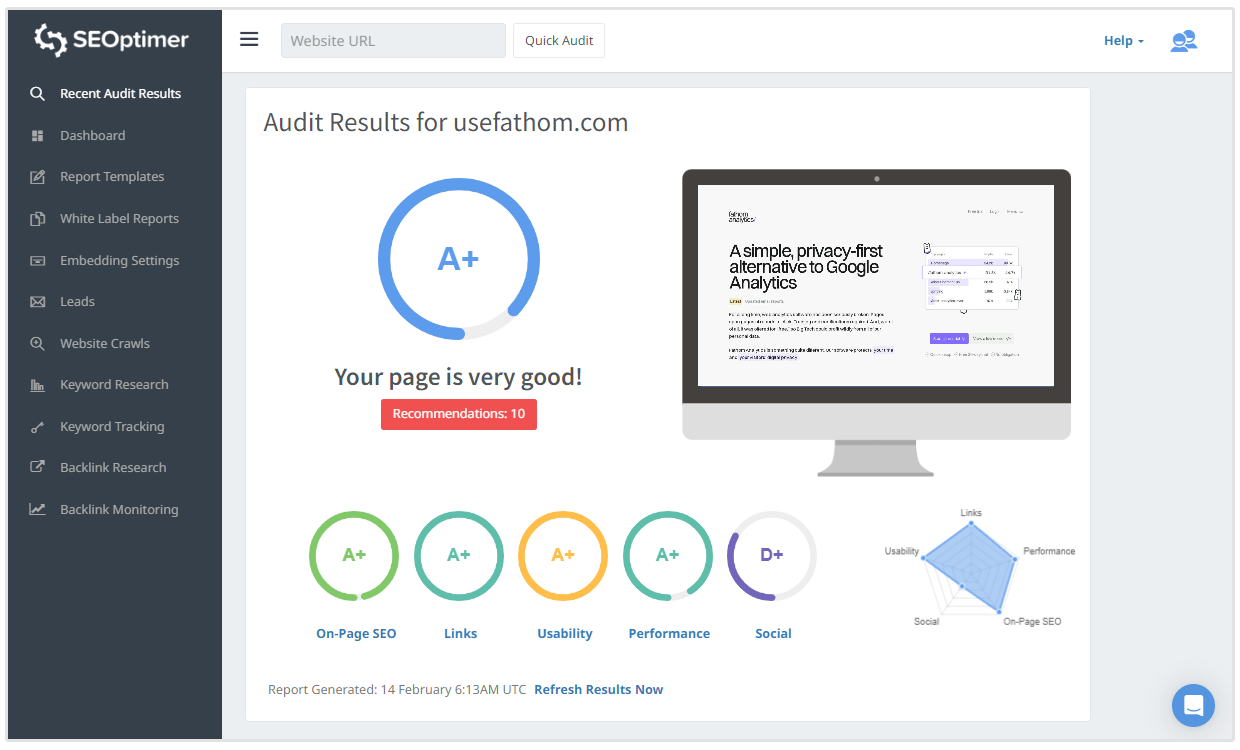
Here are some of the other benefits of using SEOptimer for website analysis:
- Get a comprehensive report on any website's SEO health.
- Track keyword rankings over time.
- Identify and fix SEO issues that are hurting your website's ranking.
- Generate white-label reports for your clients or team.
3. Use Google’s “Site:” Search Operator
Google's "site:" search operator offers a handy sneak peek at the keywords a website is using. This operator allows you to conduct a search that is limited to a specific website.
Here's how to use it:
- Open Google in your browser.
- In the search box, type "site:" followed by the domain of the website you want to explore. For example, if you want to find all pages on the Pickleheads website that mention the term 'pickleball rules’, you would type: site:pickleheads.com "pickleball rules".
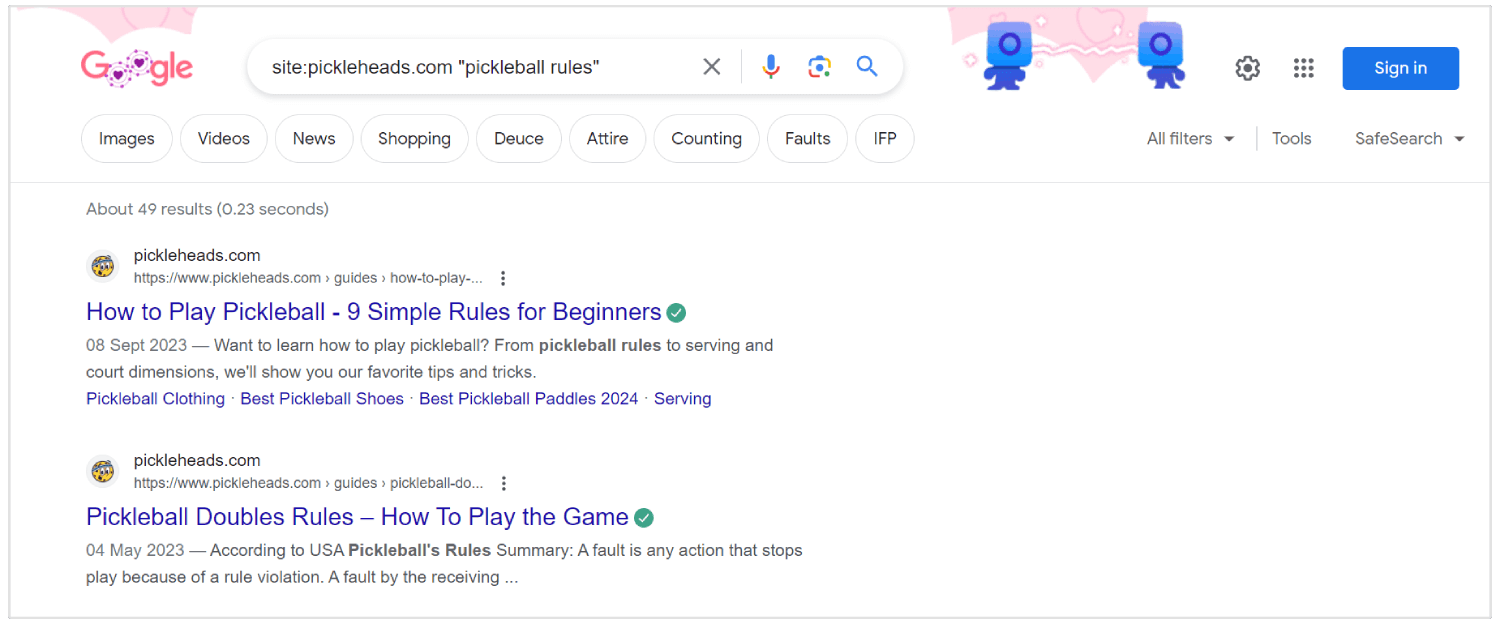
Note: the quotation marks around the target keyword is only used if you want to find exact match keywords. Feel free to omit the quotation marks if you don’t want to see results for exact match keywords.
This search will return all the pages within the specified site that contain the keyword 'pickleball rules. It's a quick and easy way to see where and how often a keyword is used on a particular website.
However, while this method is undeniably useful, it has some obvious limitations.
Primarily, you need to know the keywords you're interested in beforehand, as you need to input them in the search query.
This means the "site:" operator isn't as comprehensive as a keyword research tool when it comes to discovering all the keywords a site is using and ranking for. Keyword research tools go beyond specific terms, revealing a website's entire ranking keyword spectrum.
4. Use Google’s Keyword Planner to Find Website Keywords
Google's Keyword Planner is a powerful tool in any marketer's toolbox. While primarily designed for paid advertising campaigns, it offers insights into organic search as well.
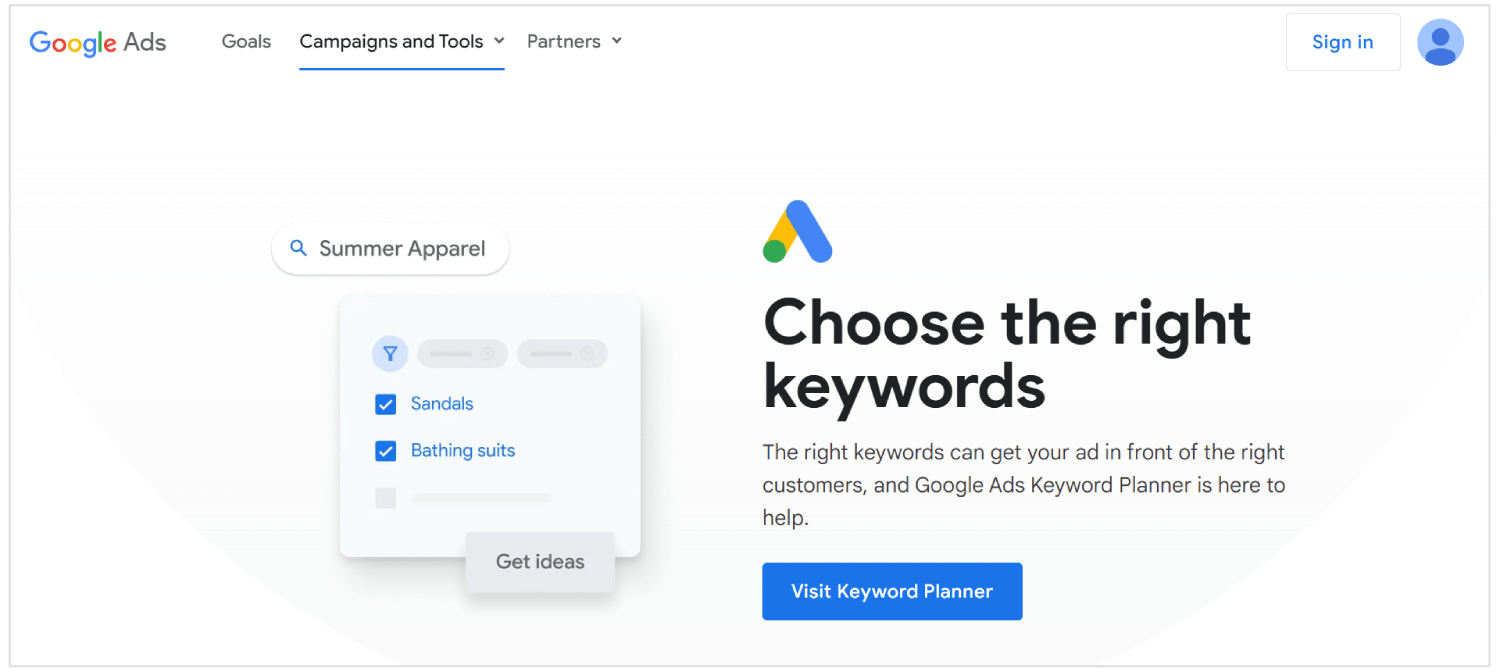
Here's how you can use it to find a website's keywords:
- Sign in to your Google Ads account: If you don't have one, you'll need to create it. It's free and only takes a few minutes.
- Navigate to the Keyword Planner: Click on the “Tools” option in the menu on the left of the page.
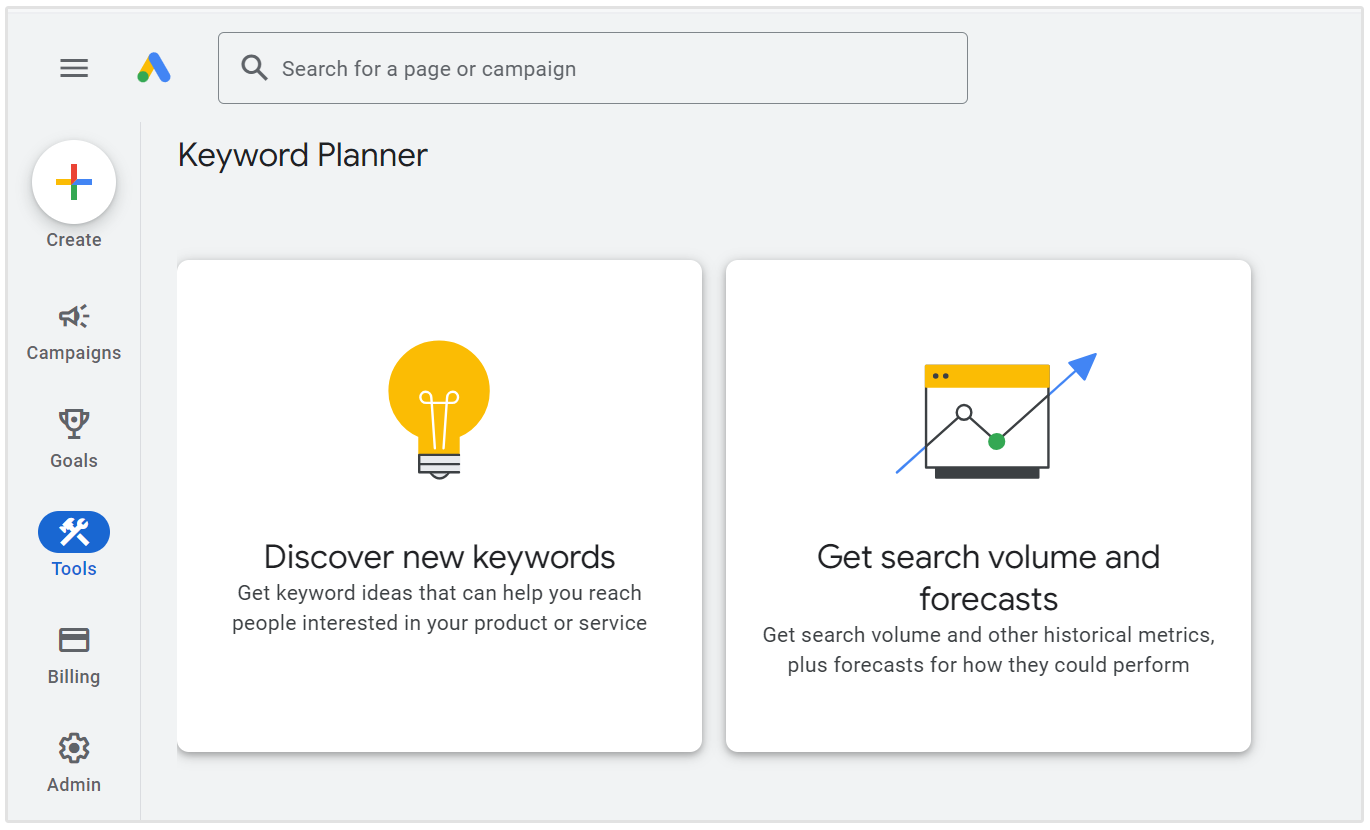
- Choose 'Discover new keywords': This option allows you to find keywords related to a specific website or topic.
- Enter a website URL: In the 'Start with a website' field, type in the URL of the website whose keywords you wish to explore. Make sure to select the 'Use the entire site' option at the bottom.
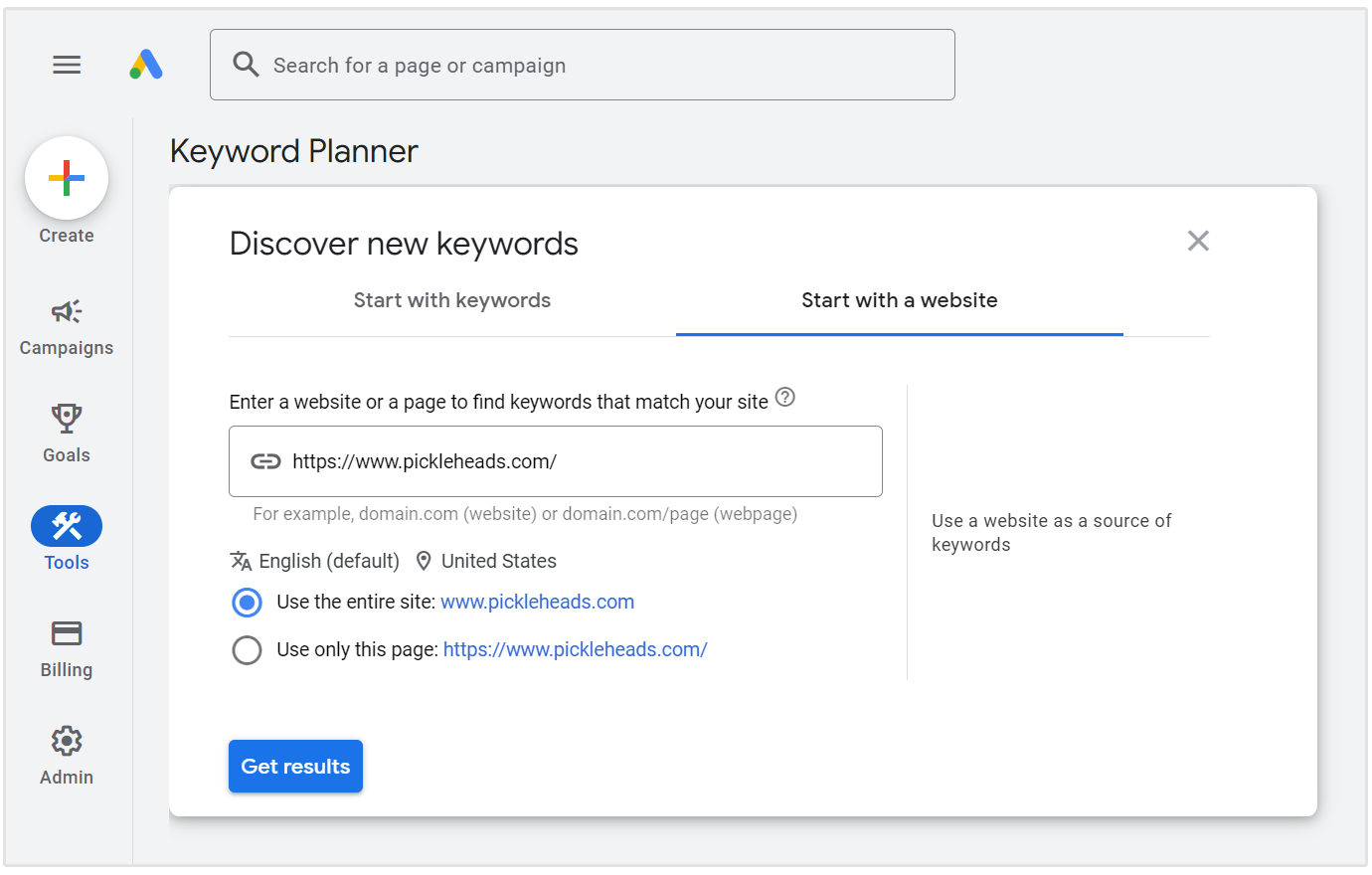
- Click 'Get Results': Google will now generate a list of keywords that are relevant to the content on the specified website.
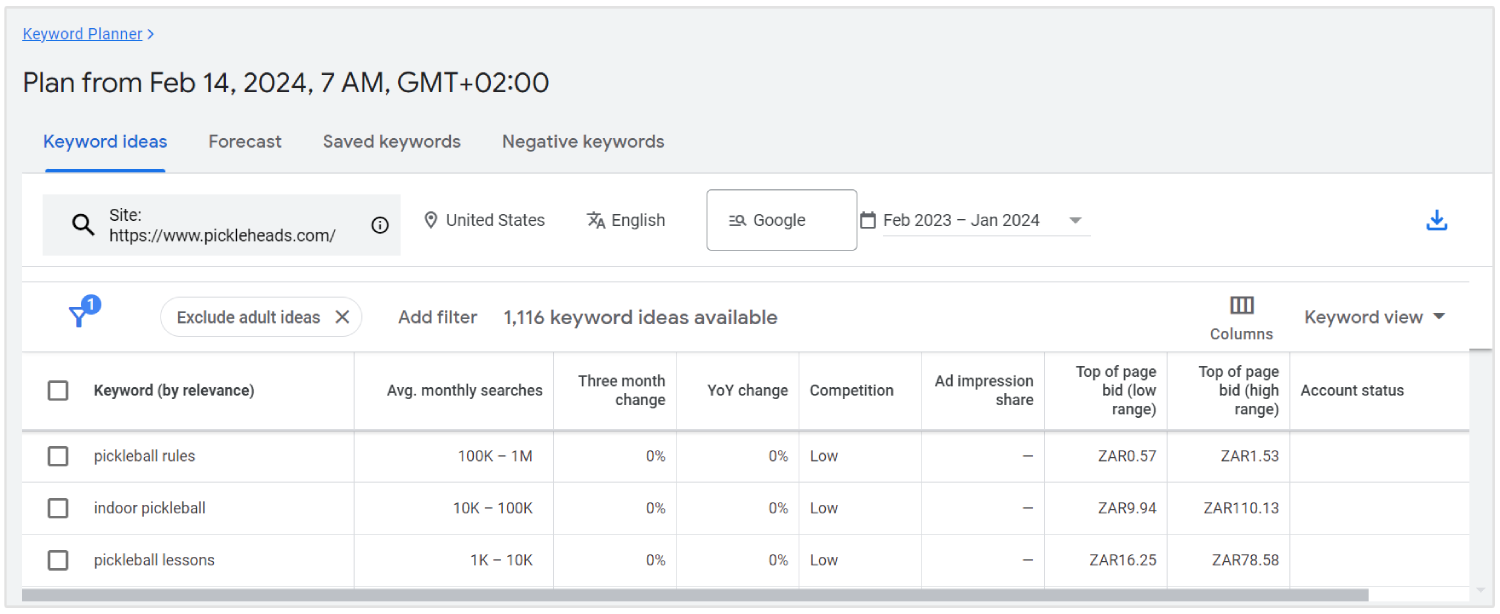
While Keyword Planner offers valuable insights, it doesn't reveal a website's complete keyword picture. It primarily focuses on keywords with potential commercial intent, which might not encompass all the website's organic ranking terms.
5. Use the Internal Site Search Function
When it comes to finding a website's keywords, there's another method you can consider - using the site's internal search function.
This approach involves using the website's own search bar to look for specific keywords and see what content pops up.
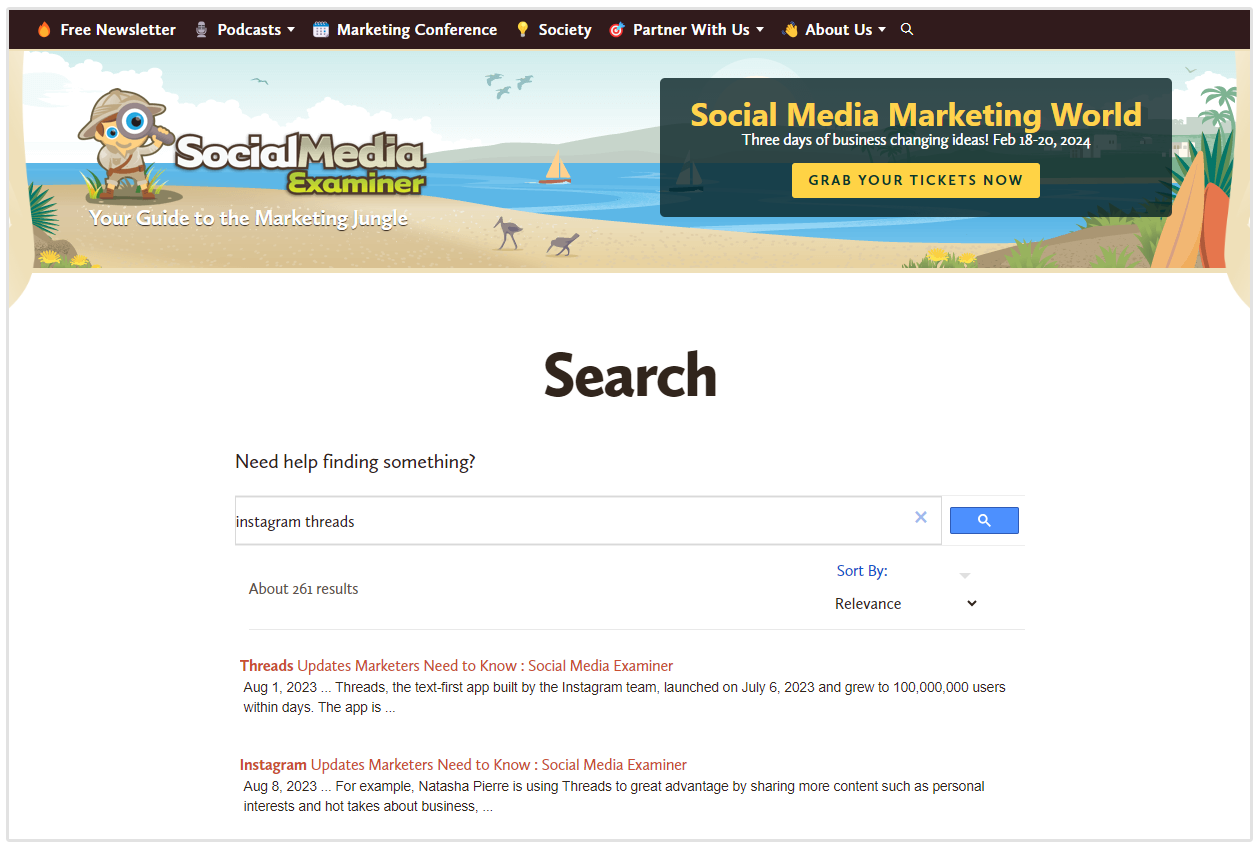
However, while this method is straightforward, it's important to note that it may not be the most effective way to conduct your keyword research.
Here's why:
- Not all websites have a search function: Many websites, especially smaller ones or those with minimal content, might not have an internal search function at all. This instantly limits the feasibility of this method.
- Limited scope: Some websites only have search functionality on certain sections of their site, such as their blog. This means you won't get a full view of all the keywords used across the entire website.
- Requires prior keyword knowledge: Just like when using Google's "site:" operator, you'll need to know which keywords you're looking for beforehand. Unlike using keyword tools, a site's internal search won't provide you with a list of all the keywords the site is using or ranking for.
Given these limitations, it's clear that while the internal site search function can provide some insights, it's not the most reliable or thorough method for keyword discovery.
6. Check the Website's Keywords in the Source Code
Another method that you might consider for finding a website's keywords is delving into the site's source code.
Here's a step-by-step guide on how to do this:
- Navigate to the Website: Open the website you're interested in researching.
- Right-Click and Select 'View Page Source': This will open up a new tab displaying the site's HTML source code.

- Find the Keywords: Use the 'Find' function (Ctrl + F or Command + F) and search for the keywords you want to find.
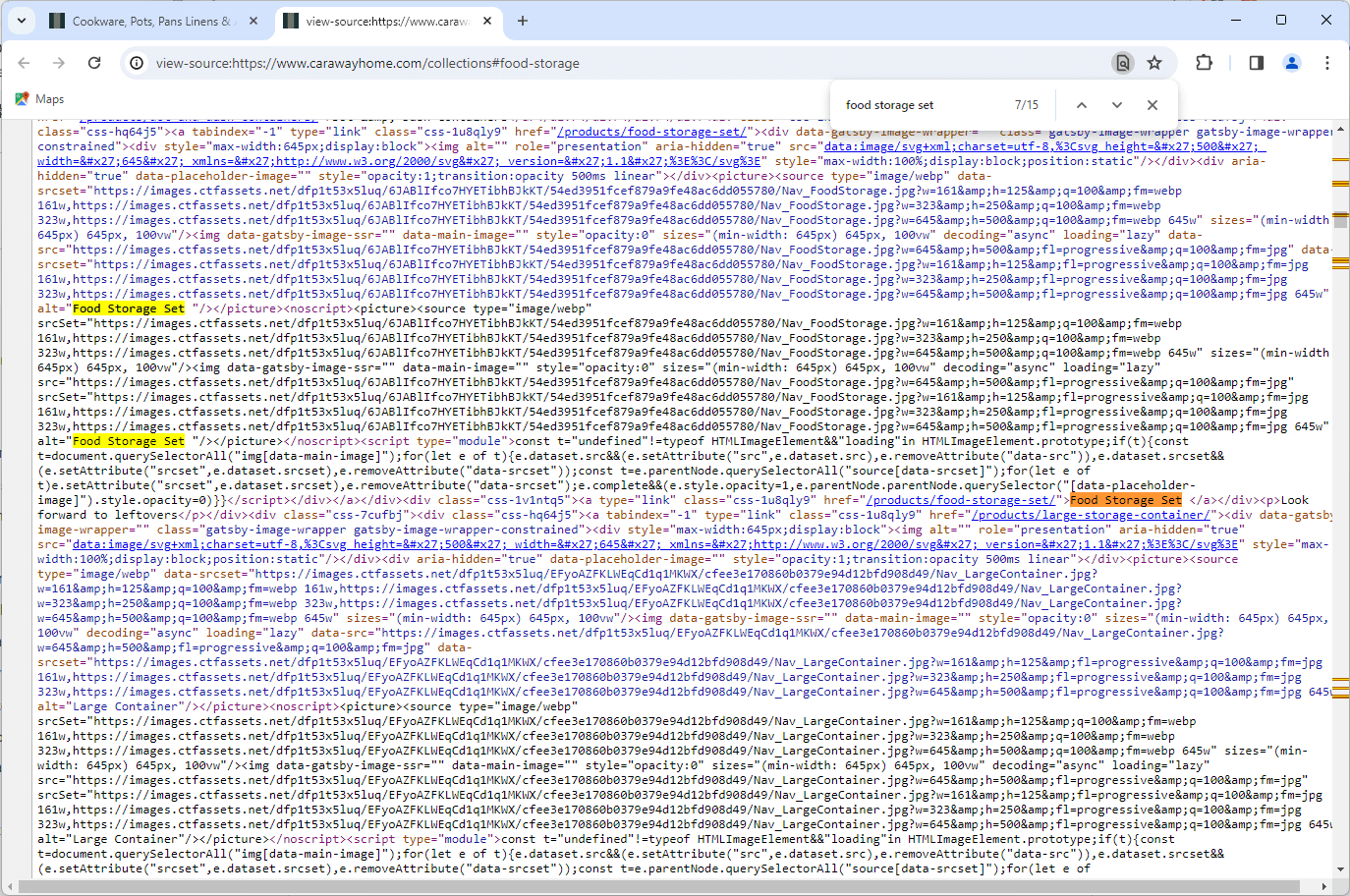
Check the keywords used in the page title, heading tags, and image alt tags as these tend to reveal the primary target keyword of a page.
But let's pause for a moment and consider the efficiency of this method:
- Again, you will need to know which specific keywords you want to check for.
- In addition to that, it’s a very time consuming process. You will need to manually check each page of the site if you want to see the entire scope of keywords they’re using.
While checking a website's source code can reveal some keywords, particularly those used in important meta tags, titles, and descriptions, it's not the most efficient method for comprehensive keyword research.
Different Types of Website Keywords
Understanding the different types of keywords used on a website will shed some light on their overall SEO strategy and target audience.
Let's explore some of the most common types of website keywords and their relevance:
- Short-Tail Keywords: These are very broad keywords, often just one to two words long. While they tend to have high search volumes, they also come with strong competition and can be quite challenging to rank for. For example, "shoes" or "cookware".
- Long-Tail Keywords: Comprising three or more words, these keywords are more specific. They typically have lower search volumes but also less competition, making it easier to rank for them. An example might be "best credit cards for travel points".
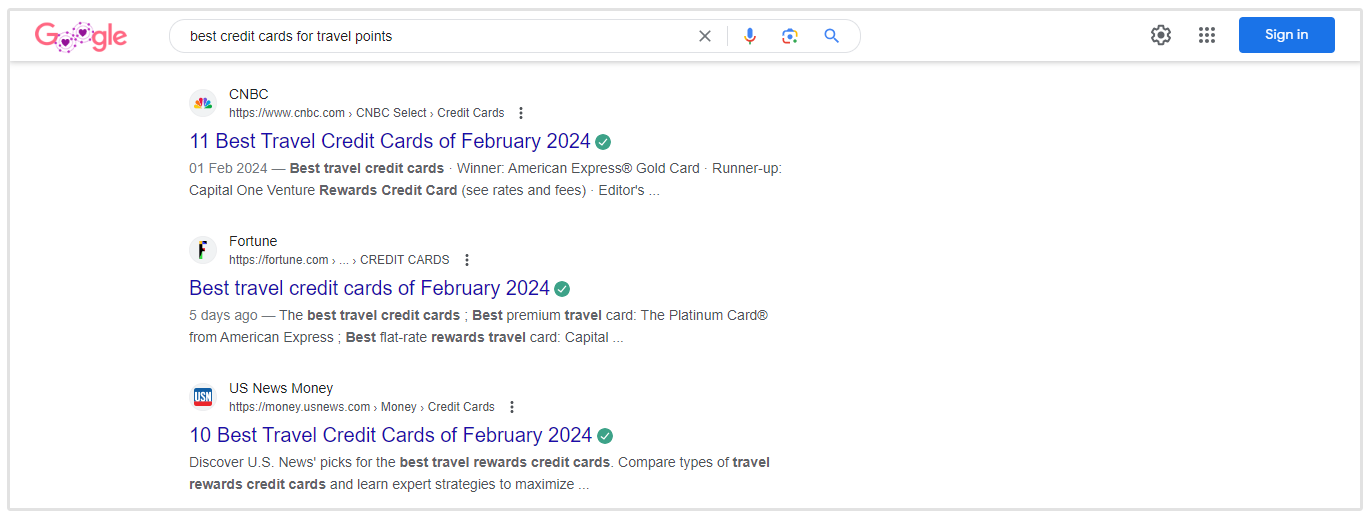
- Branded Keywords: These are keywords that include a brand's name or variations of it. They're crucial for businesses looking to increase their brand visibility and reputation online. For instance, "Nike running shoes".
- Local Keywords: These keywords are geographically specific and essential for local businesses looking to attract nearby customers. An example might be "Italian restaurant in Brooklyn".
- Transactional Keywords: These are used by users who are ready to make a purchase. They often include terms like "buy", "order", or "discount". For instance, "buy running shoes online".
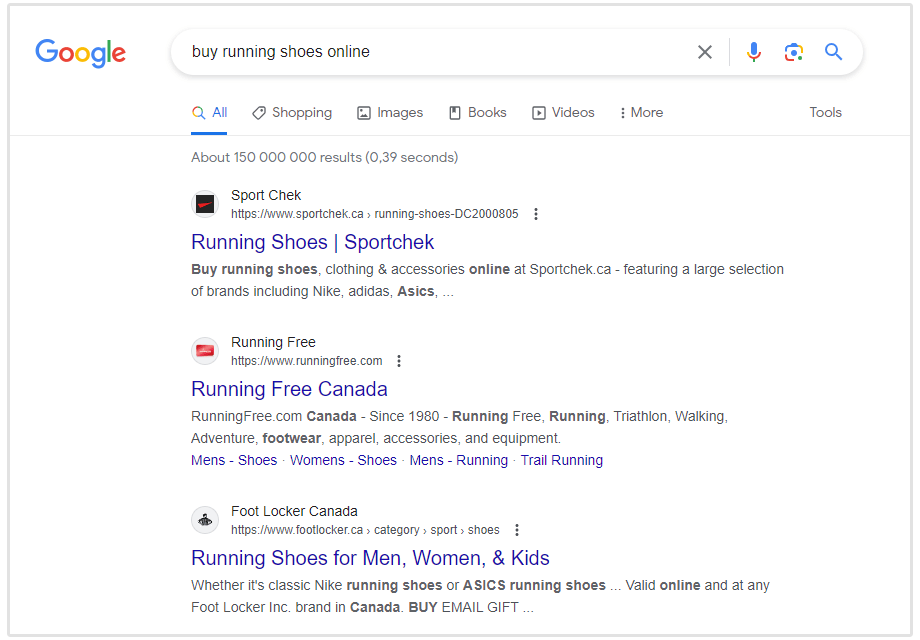
- Informational Keywords: These are generally used by people looking for information or answers to a question. They often start with "how to", "what is", or "best ways to".
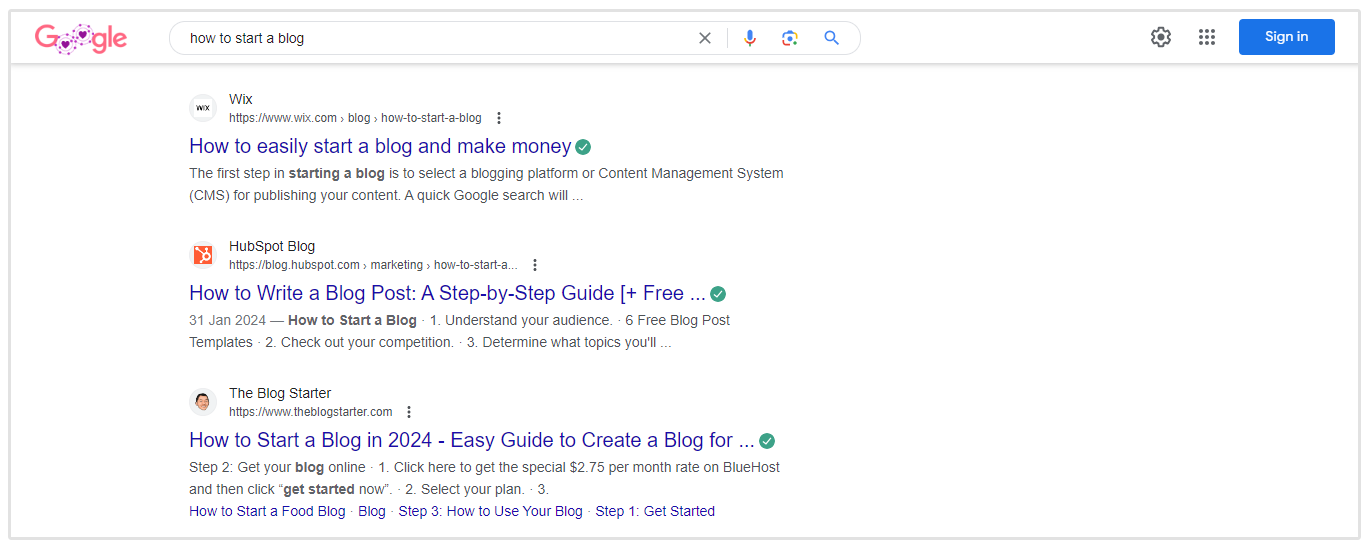
- Navigational Keywords: These are used by users who are trying to locate a specific website or page. For example, "Facebook login" or "New York Times homepage".
Frequently Asked Questions
How often should I update my website's keywords?
Aim for regular monitoring, content updates with relevant keywords, and comprehensive reviews twice a year.
Remember, the relevance of keywords can fluctuate over time due to factors like seasonality, emerging trends, or changes in your product or service offerings.
What are the limitations of analyzing page source code for keywords?
Analyzing a website's source code only offers a partial view of its keyword strategy and lacks context about keyword performance and relevance. Furthermore, it is a very time-consuming alternative compared to using a keyword research tool for finding a website's keywords.
What tools can I use to track my website's keyword rankings over time?
There are numerous tools available for tracking keyword rankings, but one particularly effective option is SEOptimer's Keyword Tracking tool. It provides real-time insights, enabling you to monitor your SEO performance and adjust your strategy as needed.
![]()
Conclusion
Understanding how to find a website's keywords is crucial for enhancing your SEO strategy.
This guide has equipped you with various methods to check any website's keywords, from utilizing dedicated keyword research tools to analyzing on-page elements.
By mastering these techniques, you'll gain a deeper understanding of your own and competitor's keyword strategies, empowering you to optimize your content, attract the right audience, and rise to the top of search results.




